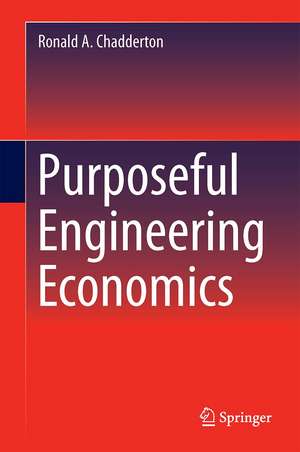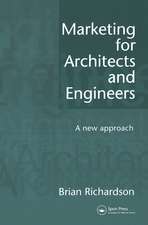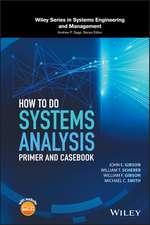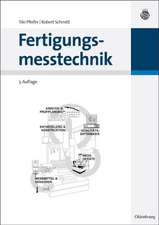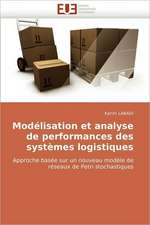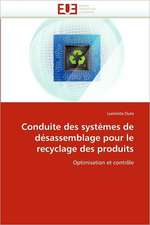Purposeful Engineering Economics
Autor Ronald A. Chaddertonen Limba Engleză Hardback – 25 iun 2015
| Toate formatele și edițiile | Preț | Express |
|---|---|---|
| Paperback (1) | 377.95 lei 6-8 săpt. | |
| Springer International Publishing – 17 oct 2016 | 377.95 lei 6-8 săpt. | |
| Hardback (1) | 385.08 lei 6-8 săpt. | |
| Springer International Publishing – 25 iun 2015 | 385.08 lei 6-8 săpt. |
Preț: 385.08 lei
Nou
Puncte Express: 578
Preț estimativ în valută:
73.69€ • 80.02$ • 61.90£
73.69€ • 80.02$ • 61.90£
Carte tipărită la comandă
Livrare economică 22 aprilie-06 mai
Preluare comenzi: 021 569.72.76
Specificații
ISBN-13: 9783319188478
ISBN-10: 331918847X
Pagini: 100
Ilustrații: XV, 100 p.
Dimensiuni: 155 x 235 x 15 mm
Greutate: 0.35 kg
Ediția:2015
Editura: Springer International Publishing
Colecția Springer
Locul publicării:Cham, Switzerland
ISBN-10: 331918847X
Pagini: 100
Ilustrații: XV, 100 p.
Dimensiuni: 155 x 235 x 15 mm
Greutate: 0.35 kg
Ediția:2015
Editura: Springer International Publishing
Colecția Springer
Locul publicării:Cham, Switzerland
Public țintă
Upper undergraduateCuprins
Introduction.- The First Class: Subjective Value and Time Preference.- A Few Basic Concepts: Setting the Stage.- Price and Cost.- Equivalence.- Inflation.- Information: Interfering with Price Signals.- Public Projects (Benefit/Cost Analysis).- Effects of Taxation on Cash Flows.- An Example “Retirement” Planning Calculation.- Costs of Regulation.- Sustainability Concerns.- Appendix A: Elements of Austrian Economic Theory.- Appendix B: Example Learning Objectives.
Notă biografică
Dr. Ronald A. Chadderton is the Edward A. Daylor Professor and past chairman of Civil and Environmental Engineering at Villanova University. He served as an officer in the U.S. Air Force before graduate work at Bucknell and Carnegie-Mellon Universities. He was a faculty member at The Pennsylvania State University prior to Villanova. His teaching interests include fluid mechanics, hydrology and hydraulics, and water and wastewater treatment. His research interests include hydraulic modelling, water quality, and assimilation capacity/wasteload allocation in streams. His research has been supported by AWWA Research Foundation, Chesapeake Research Consortium, ASCE, EPA, PennDot, and the Sarah Scaife and Carthage Foundations.
Textul de pe ultima copertă
This textbook/course supplement stands as a unique and highly original complement to the traditional engineering economics curriculum. Its primarily narrative approach conveys the essence of an “Austrian" economic perspective on cash flow analysis and decision making in engineering, without extensive tables and graphs, and requires very little mathematics. The book’s objective is to add a new perspective to the usual study of cash flow analysis and solely econometric engineering decision making. The author draws on the methodology of the Austrian Economists—a school of economic thought that bases its study of economic phenomena on the interpretation and analysis of the purposeful actions of individuals. The book includes an array of illustrative case studies examined in detail by the author and emphasizes the importance of market processes and price signals to coordinate engineering plans. Purposeful Engineering Economics is an ideal resource for students, teaching faculty, and practicing professional in a range of engineering disciplines that rely heavily on economic analysis.
Caracteristici
Facilitates understanding of the broader ramifications of planning processes undertaken by engineers Demonstrates why the secondary effects of actions are often unanticipated and/or counterproductive Adds a new perspective to the traditional study of “cash flow” analysis and engineering decision making Neatly integrates real economic insights well-documented in the social science literature into the context of the traditional, quantitative engineering economics course Features numerous cases studies analyzed by the author Includes supplementary material: sn.pub/extras
